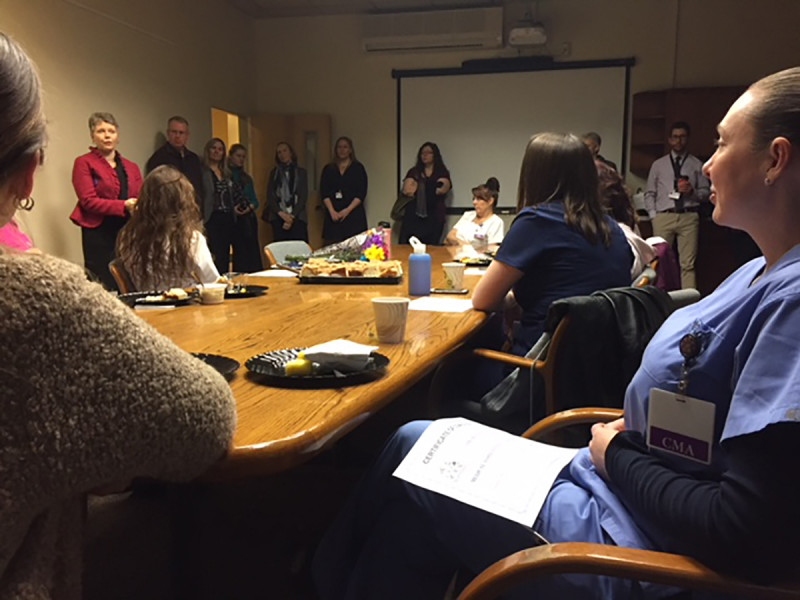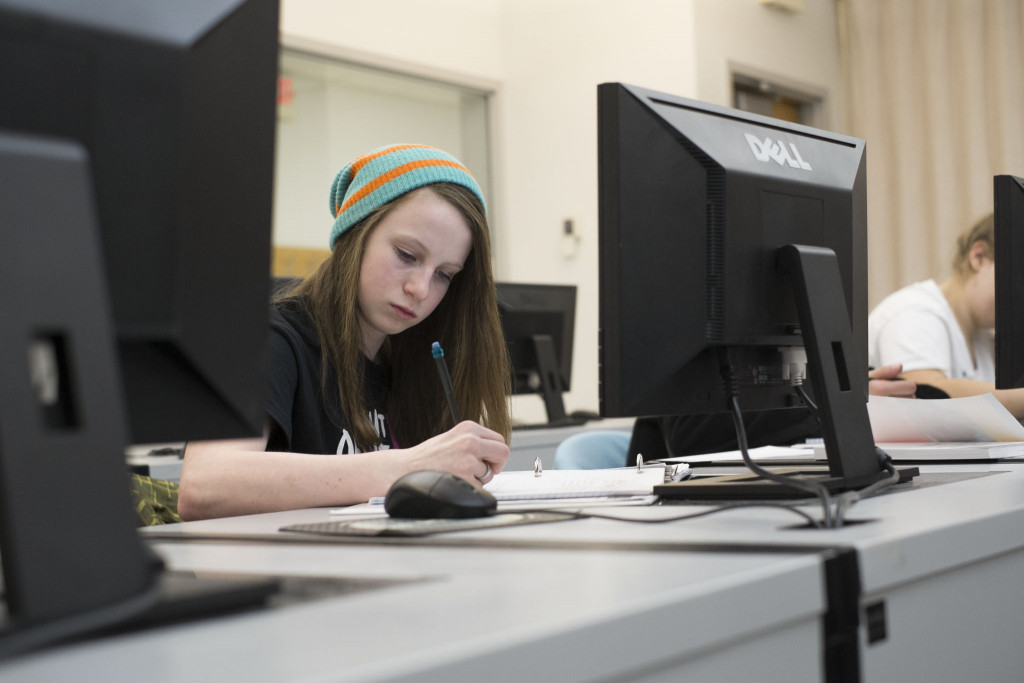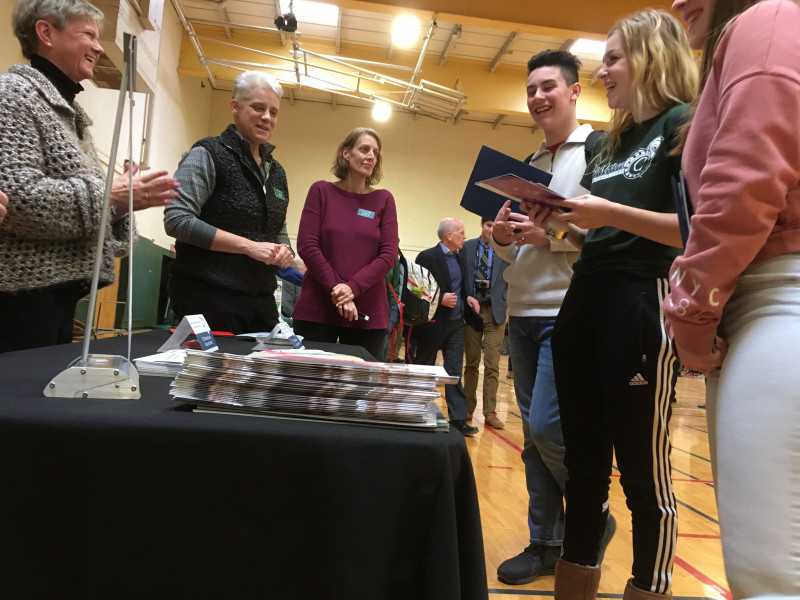
Belle Kidder was 14 when she took Introduction to College Studies (ICS) at Fair Haven Union High School—she was the only freshman in the class. “When I signed up for the class I had no idea what I was getting myself into,” said Kidder, who had been homeschooled up to that point. For that reason, she said, “I didn’t have a lot of knowledge about school systems and how they work or even how a college class works. But it turned out to be a really great stepping stone and it really got me thinking about what I wanted to do and where I wanted to go with my education and what I wanted to do for a career…I don’t think I would be where I am right now if I didn’t take the class.”
Where is she right now? A junior in college at age 18. Looking back, she doesn’t have many regrets. “As a freshman people think it’s a little early to [take ICS], but it really opens doors to be able to further your education sooner, and then you can get into doing what you really want to do.”

Kidder is studying social work at Roberts-Wesleyan College in upstate New York. She took advantage of ICS (now ICC), dual enrollment, and Early College at CCV-Rutland, and had enough credits to graduate with an associate degree in 2017. She’s now in the second semester of her junior year, and she wants to continue on for her master’s. “After I finish my bachelor’s in two years I can go straight into a one year master’s program here and then I will be done,” she says.
The ICS program evolved into Introduction to College and Careers (ICC) in 2016, with the goal of expanding its focus to include career readiness and financial literacy. This fall, the course will include a new component to emphasize STEM careers and the importance of strong math skills. The program serves as the on-ramp to CCV’s continuum of postsecondary opportunities, launching students to dual enrollment and Early College. Like Kidder, those students will see considerable savings in both time and money. And many of them may have thought they would never go to college.
Kidder says taking advantage of these programs made financial sense for her family. “Dual enrollment gave me two free classes, and then Early College gave me an entire year of free classes, so in all reality [my family] didn’t really pay for many of the classes I took.”
Kidder’s father is active duty in the Vermont Air National Guard. He’s been in the military for most of her life, and she’s now going to school with the help of the VA’s Yellow Ribbon Program, which has meant her aspirations don’t have to mean a financial burden on her family.
Kidder has a wise perspective on the decisions she’s made so far. “I think education is so important. Not necessarily just because you nowadays need a degree to get a job, but because learning is fun. And if my education hadn’t gone the way it has, I don’t know how or who I would be as a person.”
She says perhaps the greatest value of the ICS class was the confidence she gained. “I was really scared that I wasn’t going to be able to do it, and that would deter me from going to college later on,” she said. “The biggest thing I learned is that I am capable, and that a lot of people, given the right tools, are capable.”



